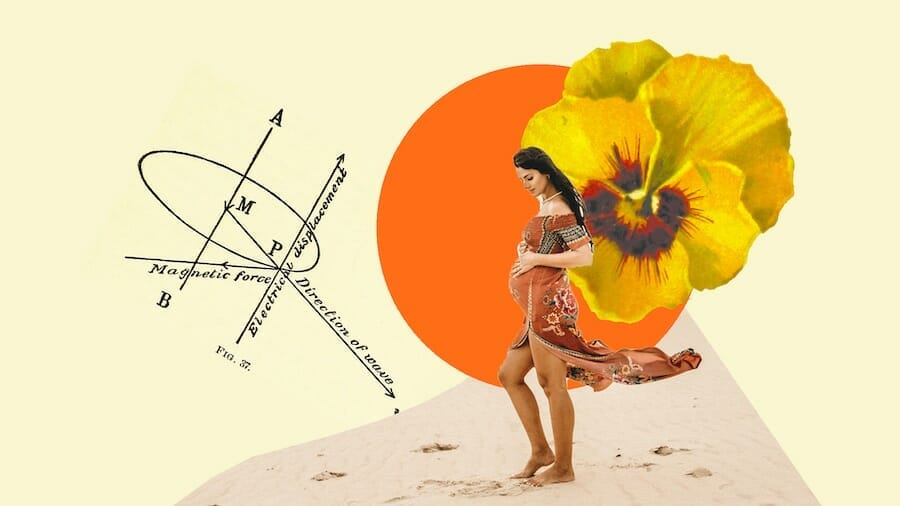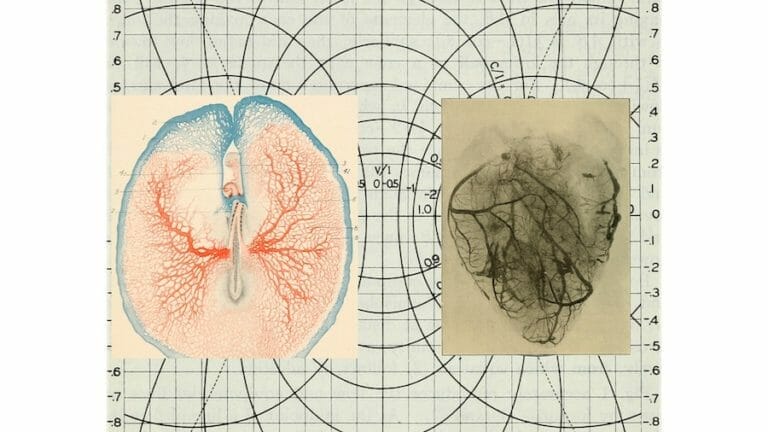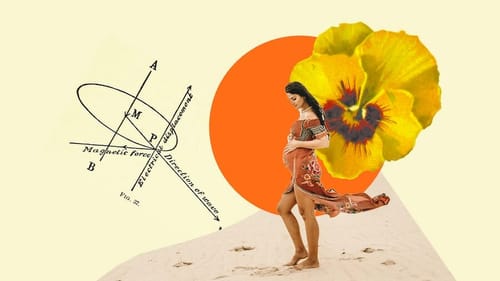It seems like my life has been focused on two main things: my spirituality, which I was very active in, even in high school, and babies. I found a way to put them together in ways that I never could have imagined when I was younger.
I got my bachelor’s in nursing at the university of Kentucky and was an obstetric nurse in a hospital, helping moms deliver, have their babies. I loved it. Then I got my master’s in child development and family studies, but really specialized in infant development. This was back in the seventies. I just loved it all. When I came out, I decided rather than being a nurse, I’d really like to do counseling. So I went and got my PhD in counseling psych and opened a psychotherapy practice. I did my research on people having their babies. Everything was around babies, psychotherapy, growth, human potential, and spiritual potential.
And I thought I kind of had found my lane. Then, in 1989, I got a flyer, out of the blue, from an organization that’s now called the Association of Prenatal and Perinatal Psychology and Health. It said, “The Power of Prenatal and Perinatal Experience—Maximizing Human Potential Throughout the Lifetime.” And I’m like “Wow, that sounds powerful.” I opened it up and saw things like psychotherapy with a three-month old. And I thought “What?” You know, here I’d studied birth as a psychotherapist. I had no clue what would you do with a 3-month-old? But it sounded very interesting and I decided to go.

Consciousness begins in the womb
It was fascinating, but it was also very discombobulating because they were talking about babies and birth and early development in a totally different way than what my whole training and background had brought me to.
They were talking about babies being really conscious in the womb and birth. And that what happened during that early time was really the most formative time rather than childhood or infancy. The whole language they used was different. What I finally started making sense of was the field had coalesced with therapists who were working with adults and children and even babies in a therapeutic way. They had found the origins of some current issue was from the pre/perinatal experience. During those therapies, they were learning more and more, mapping out, from the baby’s point of view, how it felt going through these things.
And lo and behold, they found babies were much more conscious, much more sensitive. It all had much more impact. And some of it was hard, was overwhelming, traumatic or lonely. They developed therapies how to work with adults, with children and even tiny little babies about what happened in the womb.
But the biggest differences was this. The way our Western world has known babies is looking from outside in and they were describing and supporting from inside out.
Infant psychotherapy unearths trauma formed in the womb in real-time
I thought that was fascinating. One of the workshops was William Emerson doing that psychotherapy with a three month old. He devised a whole way to work, even with newborns on current issues that were showing themselves, like feeding and sleeping and relationship issues and whatever it was. He was working with them directly, talking and being with them, about now, directly in relationship what’s happening now in the moment and what happened back then? He showed a video of his therapy and in it, he’s got a baby.
It still chokes me up because it was one of those beautiful moments. He’s got a baby. And he’s saying “Yeah, we’re talking about how, when you were born. That really scary time when the cord was around your neck,” and the baby has blotchy neck, that body memory. And he said “Yeah, I see. Yeah, that was scary. Oh, I’m so sorry. That was so scary. Yeah. And we’re talking about it now. Yeah. And you’re okay now. Yeah.”
And in that moment, my life changed because in that moment I saw a whole other level of awareness, consciousness, a dialogue, a real intimate conversation, and understanding that the baby had understanding and was responding to meaningfully and it was so moving and so beautiful to me. I saw the baby looking at William with this, what I thought was appreciation. Thank you for meeting me here. Thank you for understanding.

Reassessing modern birthing practices
Stepping into the field of prenatal therapy through play and healing imagination
I started training with William and I said, whatever this is, I don’t understand why I’ve never seen it before in babies. This is something new. I decided, I think I never saw it because I don’t think anyone told me it was possible. And William was opening up this door by saying, this is possible. So I decided to open up my psychotherapy practice and I saw a lot of young children and parents, family therapy. But it was play therapy for the young toddlers, preschoolers, and lots and lots of props and characters and tunnels and caves and things that we could create games about prenatal birth and family life.
I videotaped all my sessions for the first year and a half. Because what I found was, as I started to work with them, I had to let go of everything I thought to be true, because it’s way too limiting. I videotaped so that I could go back and watch; okay, the parents talked about the birth. Oh. And the child’s going, oh. And they showed us that. And they were resonating with their experience and showing how they actually came out. And I see he looks sad there. Oh. So I was mapping out how kids were expressing what happened to them early on and how we could heal it. And the kids showed me, directly, a very different landscape of early development than what I’d been taught.
Every single time I was with babies and children and their families the challenge was to let go of our traditional ways of seeing what’s possible, allow that bigger landscape of possibility and have them teach us. What I quickly found was that they showed me, and told me stories from birth as a newborn. Stories in the womb, very complex series of events that happened over a weekend when they were five weeks in utero.
What happened when their parents discovered them? What happened at conception and even how they felt about coming into the family when they were still in heaven. They were accurate and oftentimes they would convey, they would say, no, you felt this way when you discovered you were having me. No, I know you felt that way.
And I’d say to the parents, “Did you feel that way?” And they said, “Yeah, we did.”
So it really was, and still is, I mean, I’m 30 years into this, and I keep broadening and broadening what’s possible. The babies have really taught me.

The sophisticated subconscious ‘labyrinth’ of an infants mind
I was in private practice for a few years. Then I co-founded, with Ray Castellino, a nonprofit clinic where we would see babies and their families and videotape it all for educational purposes. We grew the work of working with very young babies from birth. Many of them were a month old, 3-months old, and we were doing this type of direct encounter therapy with parents present.
What struck me so much was seeing that even by the time, let’s say a baby’s a month old, they have a very powerful, shaped sense of beliefs and thoughts and feelings and reactions.
They think the world was safe. Was it scary? Were they expecting you to just kind of fall in love with them? Were they thinking that you were going to do something to them? All these kinds of things, they already had a very sophisticated subconscious autonomic patterning by one month age. I wrote an article about it called ‘The Power of Beliefs, What Babies Are Teaching Us.’
I really got from babies how, from preconception through conception, pregnancy, birth bonding, newborn period, those are deeply formative, intense learning experiences, which make us already be prepared and functioning in the world and have a sense of the land by the time we’re a month old.
We are just soaking in those experiences during that formative time. By the time we’re a little baby, we’ve already got a lot of that kind of, I call it the labyrinth in our subconscious . We know that only a very small portion of the information we’re taking in and processing ever reaches our conscious state, very tiny spot.
So, what decides that? What decides out of these millions and thousands of bits of information that we’re taking in every day, having feelings about and reactions to, and thoughts about and making life choices from, what determines what’s going to reach us up here?
What I firmly believe now is a big portion of that is what our experience is during preconception. And I’ll say through the first year of life, that that really determines where we place our attention, our focus, how we feel about our jobs, about school, about life and about death. Everything already has this direction by the time we’re very young baby.
